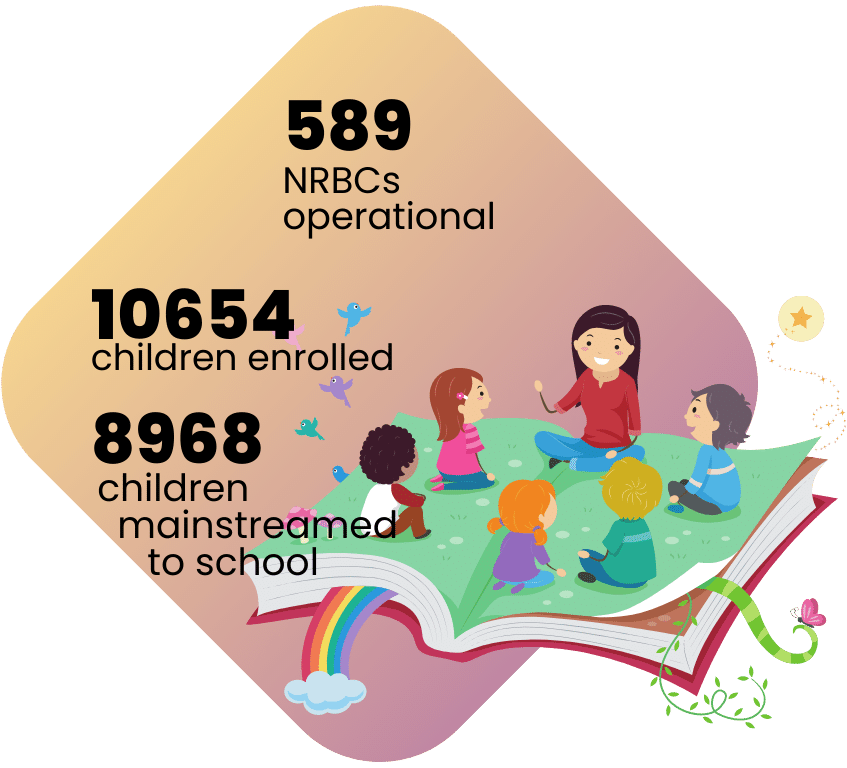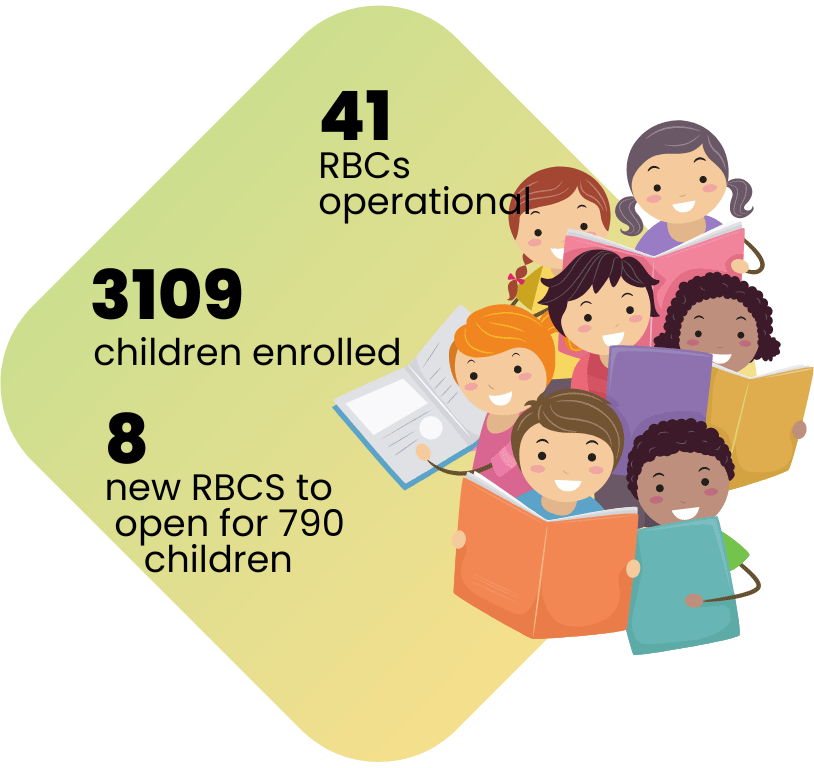Younger out-of-school children are directly enrolled into schools and older out-of-school children go through Residential Bridge Course (RBC) or Non-Residential Bridge Course (NRBC) centres before they join school. The bridging program is an essential part of ensuring universal access to schools. Without it, schooling for all is not possible.
The RBC is for long dropouts, older children who never went to schools, orphans, homeless, and semi-orphans. These children come from difficult backgrounds and many are victims of labour, trafficking, abuse, neglect, and violence. Our 24/7 residential facility provides safety, comfort, and a nurturing environment for them to re-engage with learning. Children engage in learning, sports, theatre, songs, computers, gardening, art, and craft. They learn about proper nutrition and hygiene. They make bonds with their teachers and peers.

